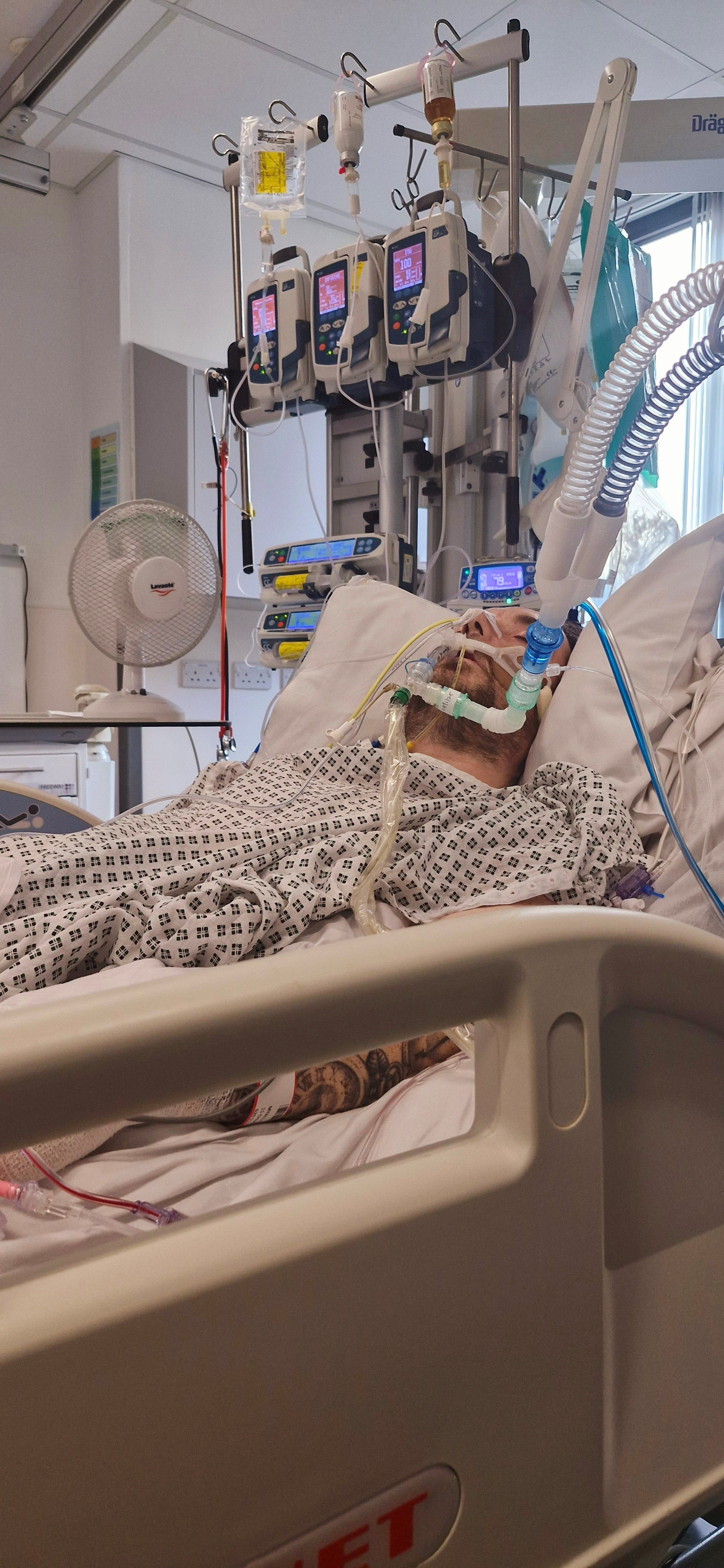
‘I missed five months of my children’s lives because of sepsis’
A Dover dad who spent nearly five months in hospital after developing life-threatening sepsis has praised the medical teams who saved his life.
Craig Myall, 36, was rushed to William Harvey Hospital in Ashford in January after suffering severe stomach pains. Doctors discovered a serious intestinal infection, and surgeons removed 800ml of pus from around his bowel.
The infection triggered sepsis, a condition that can be fatal if not treated quickly. Craig was placed in a medically induced coma in the hospital’s critical care unit and went on to endure a series of complications that required nine separate operations. He now lives with a stoma and ileostomy, meaning he must wear a bag to collect his stool.
Despite the ordeal, Craig says he will be “forever grateful” that the care he received allowed him to return home to his two daughters.
He said: “I had heard of sepsis, but I didn’t really understand what it was, and I never thought it would happen to me.”
“At the time, you don’t realise how ill you are, but it has a huge impact on your loved ones. The treatment I received was amazing; there’s no doubt I wouldn’t be here without it.
“Thanks to the hospital staff, I was able to come home and enjoy time with my children again.”
Craig spent 18 days in a coma and more than six weeks in critical care before being transferred to King's B ward to continue his recovery. He was finally discharged at the end of May.
When he left the hospital, he needed to use a wheelchair and struggled with speech and memory.
He said: “I had to learn to do a lot again, including walking. At first, I couldn’t get my words out and I was very forgetful.
“I needed constant support, but now I can manage most things myself. With lots of physio, I can walk unaided, though the brain fog is still there.
“Essentially, I missed five months of my children’s lives.”
Throughout his time in hospital, Craig was supported by his sister Sam, who paused her university studies to care for him, and his partner, who visited regularly.
“Sam put her life on hold for me,” Craig said. “They both sat with me for hours. My sister even kept a diary, though I haven’t been able to read it yet.
“I also had terrifying hallucinations in critical care, like seeing scorpions on the ceiling, thinking I’d been kidnapped, or even thinking there was an IKEA outside the unit where I wanted a hot dog.”
Craig has been supported by the critical care follow-up team since his discharge home. They were able to accompany him on a visit to the unit to see where he was cared for, take in the environment and ask questions about his treatment. During the visit he met staff who looked after him, and he was able to thank them personally.
He said: “It felt right to go back and say thank you. So many people played a part in my recovery: dieticians, physiotherapists, speech and language therapists, consultants, nurses, and health care support workers. I’m grateful to every single one of them.”
Craig first woke up in bed number 13 in critical care. He jokingly added: “I told my sister nothing good could happen in that bed. But I beat the odds to make it back home.”
He still faces further abdominal surgery but hopes to return to work as a forklift truck driver before the end of the year.
World Sepsis Day takes place on Saturday, September 13. For more information, visit https://www.worldsepsisday.org